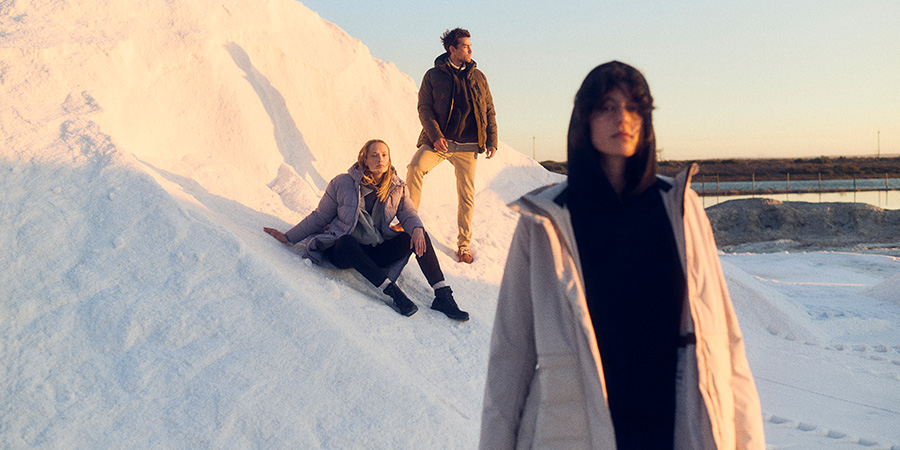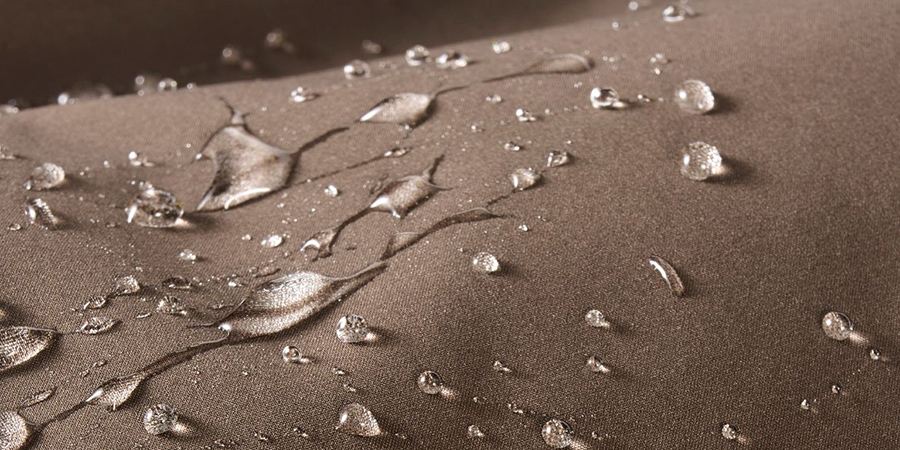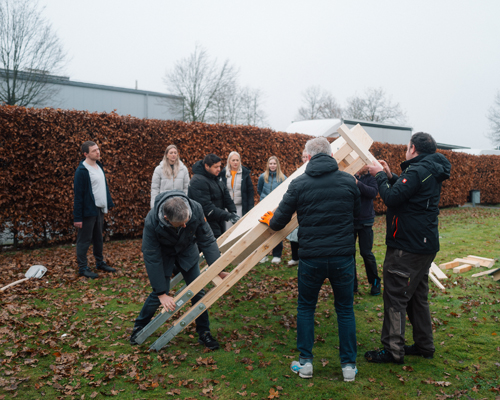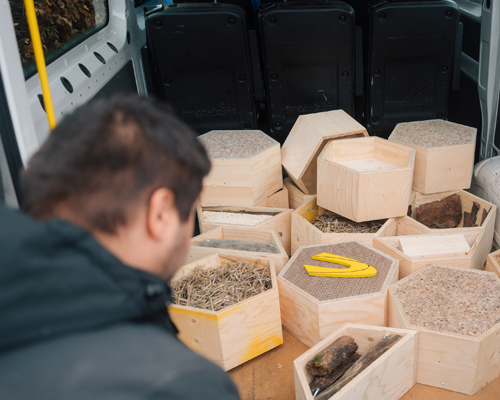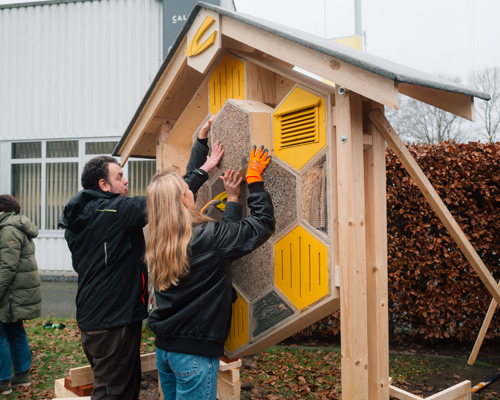camel active WILD BEE HOTEL – A HOME FOR ENDANGERED POLLINATORS
At camel active, we’re committed to protecting nature. A key part of this mission is our wild bee hotel, built in collaboration with the Ledder Werkstätten at our company site in Salzbergen.
Our nesting aid offers endangered wild bees a protected place to breed and helps to stabilise their population.
In addition to wild bees, other insects can also find safe harbour here. The various nesting areas attract different species and offer optimum protection from the weather and predators. To create ideal conditions for food sources, we have planted a wildflower meadow next to the hotel and built clay mounds.
But a good wild bee hotel needs more than just a nice location.
What makes a good wild bee hotel?
Location:A sunny, sheltered spot is best – but avoid full midday sun.
Height: Place the hotel at least 50 cm off the ground to avoid moisture and predators.
Accessibility: Keep the entrance clear and shield it from birds. A roof overhang helps protect it from the weather.
Nest Design: Smooth, long tubes help protect the bees’ delicate wings. Best materials include untreated hardwood blocks, reed stems, or bamboo tubes (3–9 mm in diameter).
Provide Food Sources: Wild bees need pollen and nectar – planting wildflowers nearby is a great support.
HOW CAN I HELP PROTECT WILD BEES MYSELF?
Building your own wild bee hotel is a great way to actively support biodiversity and enrich your garden or balcony.
Here’s how you can make a difference:
✔ Set up a wild bee hotel: Whether DIY or store-bought, make sure it meets wild bee needs.
✔ Plant wildflowers: Native species like clover, lavender, and cornflowers are ideal food sources.
✔ Avoid pesticides: Chemical treatments harm bees – choose natural alternatives instead.
✔ Keep natural spaces: Bare soil, dead wood, and sandy mounds provide natural nesting spots.
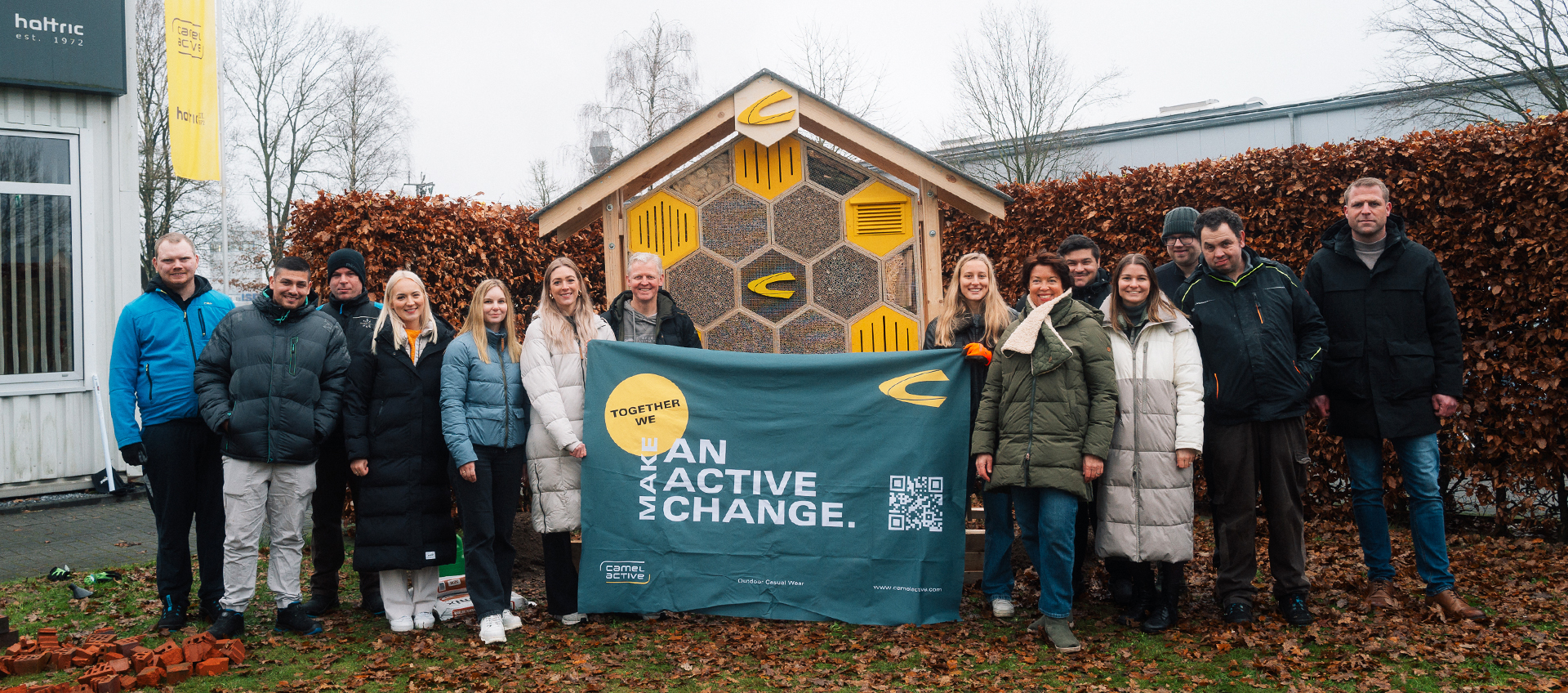
In short: Everyone can contribute. A bee hotel, pesticide-free gardening, or a patch of wildflowers – even small actions have a big impact.
So, have fun building your own wild bee hotel – let’s make an active change!


.jpg)


